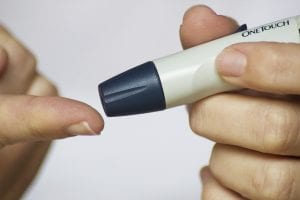Living with diabetes means a greater risk for a number of health issues especially urological conditions. More often than not, the urological effects of diabetes are directly tied to the damage diabetes can cause to blood vessels and nerves.
Bladder issues like overactive bladder, poor sphincter muscle control around the urethra, urine retention and urinary tract infections are common in both diabetic men and women. The real risk is that when common bladder issues are left untreated, they can quickly cause longer lasting and more widespread damage.
In a lot of cases with diabetic patients, they might experience a combination of classic symptoms from the above-mentioned bladder problems, resulting in what is commonly referred to as “diabetic bladder.” In these cases, the common diabetic problem of neuropathy, or nerve damage, causes the bladder to lose the ability to sense when it is full. The bladder may begin to retain up to twice as much urine as is acceptable for a healthy bladder, stretching the muscles used to control urination and weakening them over time. When urine sits in the bladder, it also allows bacteria to grow and spread throughout the urinary system.
“Diabetic bladder” is when you experience a combination of classic symptoms from the above-mentioned bladder problems. In these cases, the common diabetic problem of nerve damage causes the bladder to lose the ability to sense when it is full. The bladder may begin to retain up to twice as much urine as is acceptable for a healthy bladder stretching the muscles used to control urination and weakening them over time.
The good news is despite what may seem like an intimidating issue is usually very treatable. Even in severe cases of distended bladder, a regular routine designed by your doctor to frequently and completely empty your bladder will lead to an eventual recovery of bladder function.
Prevention is also very possible, and easier than you might think! It begins with remembering to urinate regularly, whether you feel like you “need to go” or not. Every few hours is a great place to start. Drinking plenty of fluids (especially water!) is also important to continually flush your system. A healthy diet and exercise are also a crucial part in maintaining a healthy digestive and urinary system for everyone.
If you need to talk to one of our doctors or make an appointment, give us a call at 1-877-321-8452.




